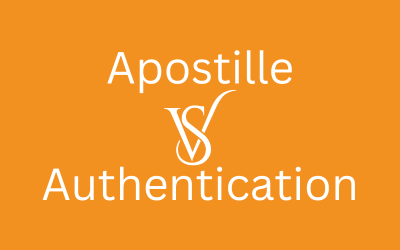As an entrepreneur, my business name is my greatest asset. I have invested countless hours promoting my business. I have untold articles hoping people respond favorably when they hear the word “CorpNet.” I have traveled across the United States, away from my husband and children, promoting my business name and its products and services. Thus, preventing others from using or “stealing” my brand name is of utmost importance to me. And, the quest to protect a business name should be important to you.
Registering a Business Name Offers No Protection
After speaking with several other entrepreneurs, I have discovered that many people are confused about what is actually required to protect a “business name.” To clarify, no one can “protect” a business name merely by registering it as a Corporation, LLC, or Fictitious Business Name. Having the business name alone grants no legal rights for “using” that name for what is most likely your intended purpose: building a brand that people will recognize, like, and trust.
Thus, it is critical to understand that registering a business name (Corporation, LLC, or DBA) will not in itself grant any rights preventing others from using that name. Rather, the legal protection necessary to prevent others from using a name comes in the form of trademark protection.
What is a Trademark?
A trademark is generally a word, phrase, symbol, or design, that identifies your business as the source of the goods or services offered. Thus, for example, in my business, our official business name is “CorpNet, Incorporated.” We originally reserved the name back in 2009 with the California Secretary of State. This “reservation” merely granted us the right to register the name as a corporation in the state of California. This act alone did NOT grant us the right to “Use” the name for purposes of marketing or branding and it did NOT prevent others from registering that name as a business in other states or counties.
A Trademark vs. a Business Name Registration
Our Trademark is “CorpNet.” This is the word that I use when I want people to identify my business as the source of the goods and services they will be receiving. “CorpNet, Incorporated” is merely the business name that was registered with the state. It could have also been “Akalp Enterprises, Inc.”, ABC Corporation, or any other name. The point is that the business name as registered with the state has very little value or importance in comparison to our trademark as it is known by the general public.
To clarify, use of a business name does not necessarily qualify as trademark use. In some cases, use of a business name as the source of goods or services may qualify it as both a business name and a trademark; however, having the name merely registered as a corporation or LLC at the state office does not in itself grant any trademark protection.
Many states and local jurisdictions do register business names, either as part of incorporating a business, forming an LLC, or obtaining a certificate to do business or as an assumed name filing. For example, in a state where you will be doing business, you might file documents (typically with a state corporation commission or state division of corporations) to form a business entity, such as a corporation or limited liability company. You would select a name for your entity such as “ABC Corporation.” If no other company has already applied for that exact name in that state and you comply with all other requirements, the state likely would issue you a certificate and authorize you to do business under that name.
However, a state’s authorization to form a business with a particular name does not also give you trademark rights and other parties could later try to prevent your use of the business name if they believe a likelihood of confusion exists with their trademarks. I’ll say that Again:
“A state’s authorization to form a business with a particular name does not also give you trademark rights and other parties could later try to prevent your use of the business name if they believe a likelihood of confusion exists with their trademarks.” -USPTO
A Trademark vs. a Domain Name
The same is true of a domain name. The mere registration of a domain name does not, in and of itself, grant or deny any trademark rights to its registrant. Also, any advertisements at other websites pointing to our website are not sufficient to grant any trademark rights. Rather, the materials I publish on the website, the brand that I promote, the content that I write, and the services that I offer and provide create my trademark rights. Owning a domain name does not give me any rights; the rights come from USING the word or trademark.
Registering a Trademark
Am I required to Register A Trademark before I can protect a business name and my brand? The simple answer is “No.” It is important to understand that I have trademark rights even when I have not registered the trademark with the USPTO (United States Patent and Trademark Office). My rights to my trademark were born the day I began promoting the word “CorpNet.” Thus, I was not required to register the word “CorpNet” as my trademark. However, owning a Federal trademark registration on the Principal Register provided me with significant advantages over unregistered trademarks, including:
- A legal presumption of ownership of the mark and my exclusive right to use the mark nationwide on or in connection with the goods/services listed in the registration (whereas a state registration only provides rights within the borders of that one state, and common law rights exist only for the specific area where the mark is used);
- Public notice of my claim of ownership of the mark;
- Listing in the USPTO’s online databases;
- The ability to record the U.S. registration with U.S. Customs and Border Protection to prevent the importation of infringing foreign goods;
- The right to use the federal registration symbol “®”;
- The ability to bring an action concerning the mark in federal court; and
- The use of the U.S. registration as a basis to obtain registration in foreign countries





